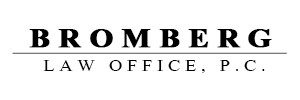When a person with an alleged outstanding consumer debt is sued by a creditor or debt collector in New York, the consumer, or party that is being sued, will have many questions about what will happen during the case. One of the most frequently asked questions debtors have is, “What can happen as the outcome of the lawsuit against me?” There are several possible outcomes to a debt-collection lawsuit. The most typical outcomes include:
- The Creditor or Debt Buyer Will Try to Dismiss the Case. The plaintiff (i.e., the creditor or debt buyer) may try to walk away from the case when a consumer puts up a fight. The case may end up getting dismissed with or orwithout prejudice. “With prejudice” means that the creditor or debt buyer cannot later file a suit over the same debt, and “without prejudice” means that the creditor or debt buyer could sue the debtor later over the same debt, perhaps in a different court or jurisdiction. There are many reasons why a creditor or debt collector might try to dismiss a case. They might lack the evidence necessary to convince a judge to grant judgment in their favor. Sometimes a creditor or debt collector will try to dismiss when a settlement agreement is reached between the parties, and the case no longer needs to proceed before a judge.
- The Parties Will Settle. The debtor and the creditor or debt buyer can always voluntarily enter into a payment agreement that works for both parties. This agreement is called a settlement, and it is a mutually agreed upon solution. A settlement might occur because the debtor agreed to a payment plan or the creditor or debt buyer might agree to accept less than the amount being sued for.
- Judgment Against the Debtor. When the judge finds that a consumer owes a debt and must pay a creditor or debt buyer, a judgment is entered against the consumer. The judgment could take the form of a wage garnishment order, a lien on personal or real property, or repossession or foreclosure.
- Judgment in Favor of the Consumer. There might be circumstances where a consumer can bring a claim – in state or federal court – against a debt buyer/debt collector for violations of the Fair Debt Collections Practices Act. The judge might rule in the consumer’s favor, and award actual or statutory damages to the debtor, plus fees and costs
- The Case Could Be Dismissed by The Judge. If the creditor or debt buyer is unable to provide evidence showing that a consumer owes an alleged debt, the case could be dismissed (either before or after trial).
Which direction your debt lawsuit will take depends on your particular circumstances, the willingness of your creditors or debt collectors to negotiate a settlement, and how skilled your debt defense lawyer is.
Contact A New York Debt Defense Lawyer
Navigating a debt lawsuit can be difficult, and these cases are often complicated. It is always beneficial to have an experienced New York debt collection defense lawyer by your side helping you negotiate settlement agreements or defending your case. Contact the Bromberg Law Office, P.C. to schedule an appointment today.
